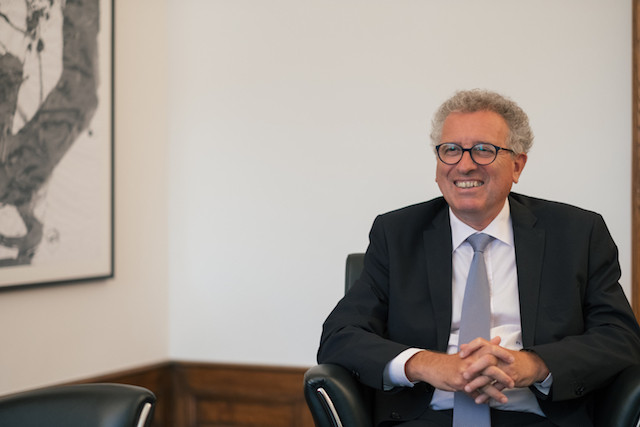He will stand against Mario Centeno, minister of finance of Portugal, Peter Kazimir, minister of finance of Slovakia and Dana Reizniece-Ozola, minister of finance of Latvia.
Jeroen Dijsselbloem, the current Eurogroup president, will leave his mandate on 13 January 2018.
The new president will be elected for a period of 2.5 years.
Previously, Jean-Claude Juncker, the current European Commission president, had been president of the Eurogroup from 2005 to 2013.
These nominations are usually a delicate balancing act of European party politics, which endeavour to make sure that no party is dominant, and of small/big, East/West, North/South member states. Reports that Gramegna is unlikely to win result from the fact that Juncker is also a Luxembourg national, and that this post may be tagged for an East or South European country.
Voting procedure
The election of the new president will take place on Monday 4 December, by means of a simple majority vote.
If none of the candidates receives at least 10 of the 19 votes by the Eurogroup members at the end of the first voting round, each candidate will be informed individually of the number of votes that he/she has received. Candidates will then have the opportunity to withdraw their application. Voting will take place until a simple majority is reached on one of the candidates.
The winner will be announced to the ministers at the end of the vote and presented at the Eurogroup press conference, immediately afterwards.
